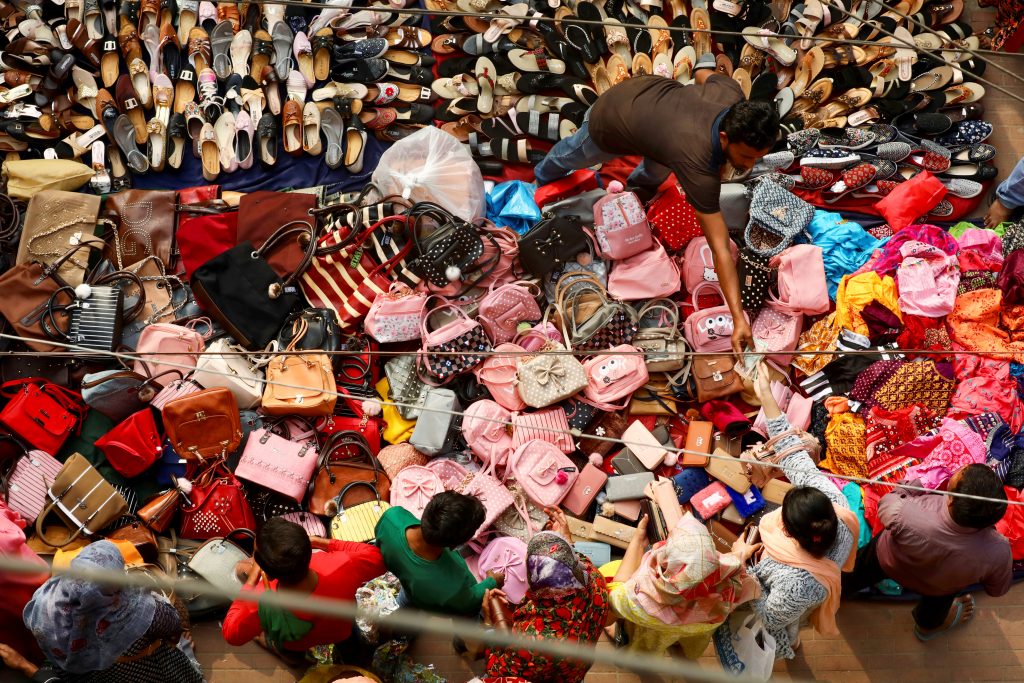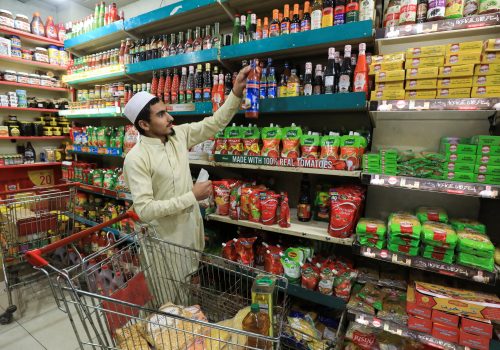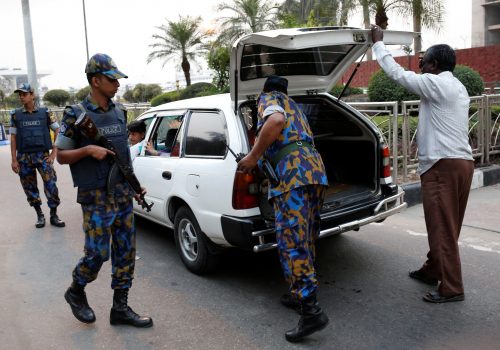On April 5, 2022, the United States Institute of Peace (USIP) hosted a conversation with Foreign Minister of Bangladesh H.E. Dr. A.K. Abdul Momen on lessons learned from the last fifty years and the path ahead for US-Bangladesh relations.
Read a recap of the event below and tune in here to watch the conversation.
Lisa Grande, President and CEO of USIP, opened by celebrating fifty years of partnership between the United States and Bangladesh. She highlighted the important role Bangladesh has played in advancing the cause of international peace, making major contributions to almost all United Nations (UN) peacekeeping efforts in the past decade and currently serving as the largest contributor to UN peacekeeping forces. The partnership between the United States and Bangladesh is based on a shared vision of democracy, rule of law, basic human rights for all, and security cooperation.
Bangladesh’s transformation into South Asia’s second largest economy is testament to the country’s ambition, drive and achievement. Bangladesh continues to improve labor rights, uphold and respect human rights, and protect freedom of expression, all of which will help expand Dhaka’s leadership in the region.
At this point, the conversation moved into a moderated discussion with the Honorable Foreign Minister.
Referring to letters from US President Joseph R. Biden and Bangladeshi Prime Minister Sheikh Hasina over the US-Bangladesh relationship and core interests, Minister Momen outlined how the drive, resourcefulness and innovation of Bangladesh’s rebuilding after the 1971 war serve as a model for the rest of the world. Both countries are proud about their durable partnerships revolving around development, economic growth, and counterterrorism, and continue to work together in addressing the climate crisis, helping Rohingya survivors of genocide and supporting UN peacekeeping missions. The next fifty years in US-Bangladesh relations will see continued progress on equality, democracy and respect for human rights.
Despite being a “bottomless basket,” said the Foreign Minister, Bangladesh has now developed into a land of opportunity with a vibrant economy. This can be attributed to the dynamic, hard working people of Bangladesh and great leadership. Over the last few years, Bangladesh’s gross domestic product (GDP) growth rate is on average 6.6 percent and prior to Covid sat at 8.8 percent. Poverty rates have also been reduced. When Bangladesh was created, their below poverty level was around 80 percent, and now it sits at 20.5 percent. In addition, the United States remains Bangladesh’s largest trading partner. However, there is room for more investments and partnerships, as the existing partnership is mostly concentrated in limited sectors. It is time to diversify into other investment portfolios like pharmaceuticals, infrastructure, technology, the blue economy, and the Bay of Bengal.
Diversification, private/public partnerships, investments, and job creation are crucial in ensuring the improvement of Bangladesh’s economy. Bangladesh strives for “economic diplomacy” where trade is improved, trade items are diversified, and more countries are buying items. Furthermore, ensuring gainful employment, consistent financing, quality salaries, and the transfer of technology are critical.
Asked about regional geopoliticas, Minister Momen explained that Bangladesh is situated by India and China, and maintains relations with both. Bangladesh shares a rock-solid relationship with India and resorts to resolving all critical issues through dialogue and conversation, such as with regards to water sharing. Bangladesh maintains nonpartisan relations with China. While it remembers China vetoing Bangladesh’s admission into the UN, China remains of great economic importance.
With regards to Bangladesh’s abstaining from voting on the Ukraine-Russia issue at the UN, the Foreign Minister explained how Bangladesh felt that the resolutions reflected a “blame-game” in terms of wording, rather than a peace-seeking approach. Bangladesh wants to promote a culture of peace, a mindset of tolerance, and respect towards others. Moreso, Russia is considered an old friend that helped Bangladesh gain independence in 1971.
Finally, Amb. Shaffer asked Minister Momen about climate change, mentioning that Bangladesh is one of the world’s most affected countries by climate change. Each year 6,500 people are uprooted from their homes and jobs, explained the Minister Momen, because of global warming. Bangladesh supports and advises others to follow the Paris Climate Agreement of 2015.
Overall, the program highlighted the importance of the US-Bangladesh relationship, Bangladesh’s development into a thriving economy, and future goals regarding the climate crisis and economic diplomacy.


